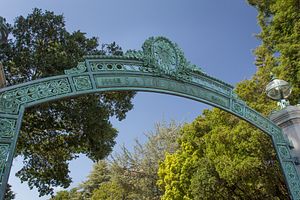In Japan, there is a unique subculture that is commonly seen in junior high and high schools; the yankii culture. Despite appearances, the phrase is not referring to Americans. Rather, yankii are a group of people who refuse to conform to Japan’s strict societal norms, usually rebelling with brightly dyed hair, customized uniforms, and a willingness to fight. A typical yankii will drop out of high school, often to become construction workers or young mothers. They aren’t your typical troublemakers; rather, it is a lifestyle with a strict hierarchy within the group.
Once one has adopted a “yankii lifestyle,” it becomes extremely difficult to pursue something else later on. The Japanese education system is a large reason for this. Since high school education is not compulsory in Japan, all junior high school students must take an entrance exam, which will determine whether they get accepted into the high school of their choice. This leads to segregation between high and low level, or “good” and “bad,” schools. While students at high-level schools have an advantage in university admissions because they are better prepared by their high schools, the “bad” schools will have the largest student population of yankiis, who will not be expected to reach university. Also, students are not failed or held back in school no matter how poorly they perform. Unless one drops out, graduation is almost guaranteed.
One former yankii, though, has not conformed to this stereotype, and has become a popular topic on social media in Japan.
Takuya Suzuki was a yankii from his junior high school days, breaking rules and getting into fights regularly. His first trip to the local police station was at age 13. Since he was already embedded in the yankii culture in junior high, he went on to a high school with one of the lowest rankings in Japan. It was a school effectively run by yankiis, and Suzuki was able to graduate because his friends happened to want to. He then went on to become a construction worker, where he earned a comfortable salary.
Shortly after Suzuki started working in construction, he took a trip with his father, who was receiving an award from his company Prudential in Hawaii. Suzuki recalls this trip as the turning point in his life. After seeing so many people happy and satisfied with their jobs, He felt a desire to be able to enjoy his work as well. He realized that he wanted more out of life.
After a glimpse of a different world, Suzuki set out to pursue a different path. However, since he had spent most of his school days without opening a textbook, he didn’t know how to study, and so he bought a couple of books on the stock exchange and a dictionary. He quickly realized that it was nearly impossible to study on his own, and so he enrolled in a data processing school, and eventually landed a corporate job. This was in the early days of the global financial crisis, and as Suzuki watched his older coworkers lose their jobs, he learned that superior qualifications were the key to success. So at age 24 he began to pursue a university degree.
With his father agreeing to support him, Suzuki first set his sights on Japan’s top university, the University of Tokyo. Given his academic background, however, he estimated that getting admitted would be time consuming, so he set his sights on universities overseas. He realized that, unlike Japan, American universities not only looked at a student’s academic background, they also valued other factors such as extra-curricular activities, professional experience, and leadership skills. He also realized that the University of California had a good transfer system, and decided to enter a community college in the Berkeley area in order to later apply to UC Berkeley as a transfer student. Suzuki moved to the U.S., where with his severely limited language skills he found that even ordering coffee was a struggle at first. In order to enroll in a community college, he first took English classes at a language school for six months. Then, after nearly three years of studying 14 hours a day, Suzuki was admitted as a transfer student, and is currently studying at Berkeley, earning above average grades in his classes. After graduation, he is interested in going into the teaching profession.
The current system in Japan might have been a disadvantage for Suzuki, although there is talk of reforming the university admissions process to something quite similar to that used in the U.S. Under the current system, senior high school students take a standardized exam called the National Center Test for University Admissions. They apply to universities that accept the score they earned from the standardized exam, and then take the exam given by that university. The reform will do away with the standardized exam, and replace it with a “learning achievement test.” The test can be taken a number of times a year and will categorize students into different ranks, instead of giving a precise score. A government panel also wants universities to reform their admissions process by putting more focus on “human qualities,” such as whether the student has studied overseas or has participated in extracurricular activities. The aim of this reform is to foster the leadership skills and creativity of the next generation.
When asked about his thoughts on studying in the U.S. for the first time, Suzuki tells The Diplomat that diversity was an intriguing factor. With students from different ethnic and cultural backgrounds, there were many opportunities to exchange different opinions and broaden ideas. Asked how he now sees himself during his school days in Japan, Suzuki smiles and says that he does not feel that he has changed as a person, but rather has simply shifted his focus.

































